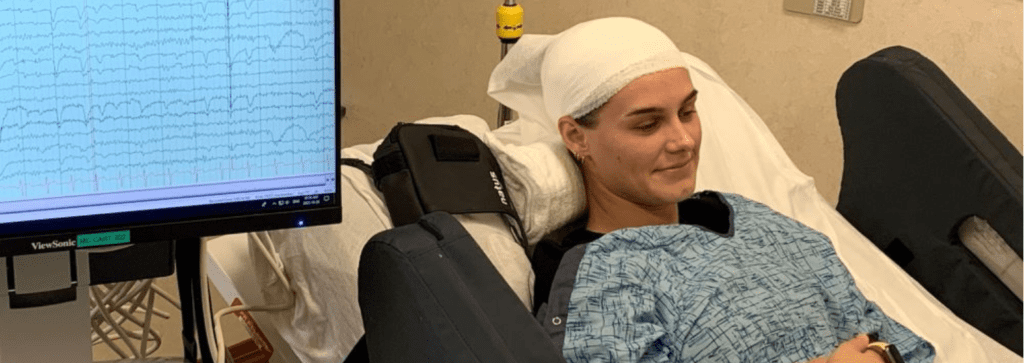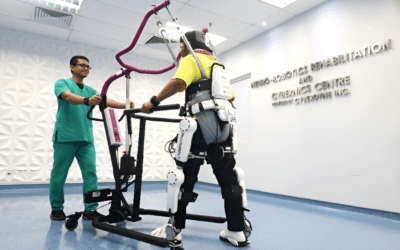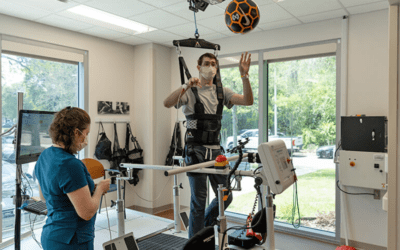National Epilepsy Day serves as an opportunity to raise awareness, offer support, and foster understanding about epilepsy, a neurological disorder that affects millions worldwide. Celebrating this day with purpose not only helps raise public awareness but also supports those living with epilepsy, enabling them to feel seen, heard, and supported.
What is Epilepsy?

Epilepsy is a neurological condition characterized by recurrent, unprovoked seizures. A seizure occurs when there is abnormal electrical activity in the brain, leading to temporary disruptions in behaviour, movement, sensation, or consciousness. While seizures are a hallmark of epilepsy, they can vary greatly in intensity and duration.
- Seizure Types: There are several different types of seizures that people with epilepsy might experience, including:
- Focal Seizures: Affect one part of the brain, causing localized symptoms.
- Generalized Seizures: Affect both sides of the brain, often leading to loss of consciousness.
- Absence Seizures: Brief episodes of staring or “blanking out.”
- Tonic-Clonic Seizures: Often the most recognized, with muscle stiffening followed by jerking.
Epilepsy can develop at any age and is not limited to a particular group or demographic. It is estimated that approximately 1 in 26 people will develop epilepsy at some point in their lives.
Common Causes and Triggers of Epilepsy
While the exact cause of epilepsy may not always be identified, several factors can lead to or trigger the condition:
Causes:
- Genetic Factors: In some cases, epilepsy may be inherited, especially in those with certain genetic mutations.
- Brain Injury: Physical injuries to the brain, such as head trauma from an accident, can lead to epilepsy.
- Stroke or Brain Tumours: Damage caused by stroke or tumours can result in seizure activity.
- Infections: Brain infections like meningitis or encephalitis can also be a factor in the development of epilepsy.
- Developmental Disorders: Certain conditions like autism or cerebral palsy may be associated with epilepsy.
- Neurodegenerative Diseases: Conditions like Alzheimer’s or Parkinson’s disease may also contribute to epilepsy.
Common Triggers:
- Lack of Sleep: Fatigue or poor sleep patterns can increase seizure frequency.
- Stress: High levels of stress or emotional upheaval can provoke seizures.
- Flashing Lights: Certain visual stimuli, such as flickering lights or patterns, can trigger seizures in individuals with photosensitive epilepsy.
- Alcohol or Drug Use: Consumption of alcohol or recreational drugs can lower the seizure threshold.
- Hormonal Changes: Hormonal fluctuations, especially in women, may trigger seizures during menstruation or pregnancy.
- Infections or Illnesses: Any illness that causes fever or dehydration can be a trigger.
Understanding these triggers can help individuals manage their epilepsy more effectively and prevent unnecessary seizures.
The Importance of Raising Awareness
On National Epilepsy Day, we empower individuals by raising awareness and promoting understanding of epilepsy. Together, we break stigma and support those affected in leading fulfilling lives.
Raising awareness for epilepsy is critical for several reasons:
- Debunking Myths: There are many misconceptions about epilepsy, such as the false belief that people with epilepsy should not participate in physical activities or that they are dangerous to be around. Awareness efforts help combat these stereotypes and encourage inclusivity.
- Reducing Stigma: Many individuals with epilepsy still face discrimination or social isolation. By raising awareness, we can create an environment where those with epilepsy are treated with understanding and respect.
- Promoting Early Diagnosis and Treatment: The earlier epilepsy is diagnosed, the more effectively it can be managed. Raising awareness encourages individuals to seek medical advice when they experience signs of a seizure.
- Improving Research Funding: Awareness campaigns often lead to increased funding for research, which can result in better treatments, improved quality of life, and eventually, a cure for epilepsy.
How to Support on National Epilepsy Day

Celebrating National Epilepsy Day with purpose involves both personal and collective efforts.
Here are ways to observe the day and show support: Raising awareness for epilepsy through community events…
1. Educate Yourself and Others
- Learn about Epilepsy: Take the time to read up on epilepsy, its causes, symptoms, and the challenges people living with it face daily. Share your knowledge with friends and family to spread awareness.
- Host a Community Event: If possible, organize a local or virtual event to educate others. This could include talks, panel discussions, or Q&A sessions with experts and people with epilepsy.
2. Raise Awareness on Social Media
- Share educational content, personal stories, and facts about epilepsy on social media. Use hashtags like Epilepsy Awareness or National Epilepsy Day to help spread the word.
- Change Your Profile Picture: Show support by using an epilepsy awareness ribbon or other related imagery as your profile picture to encourage conversations.
- Participate in Online Campaigns: Many epilepsy organizations run campaigns with specific challenges, such as sharing a personal story or donating to research. Get involved!
3. Support Epilepsy Organizations
- Donate: Contribute to organizations that fund epilepsy research, support those with epilepsy, and advocate for better public awareness. Consider monthly donations or fundraising for special events.
- Volunteer: Many epilepsy advocacy groups need volunteers for outreach, fundraising, and organizing events. Offering your time can make a significant difference.
- Attend Events: Participate in fundraising events, awareness walks, or other local events that support epilepsy research.
4. Host a Purple Day Event
Purple Day, celebrated on March 26th, is a global initiative to raise awareness about epilepsy. You can mark National Epilepsy Day by organizing a purple-themed event or wear purple clothing to show your support for the epilepsy community.
5. Support Research and Education
- Advocate for increased research funding and better treatments. This can be done by writing to lawmakers, attending public forums, or joining epilepsy advocacy groups.
- Support the development of better educational resources for both those with epilepsy and their families.
6. Start a Conversation
- Be proactive in addressing the stigma surrounding epilepsy. Encourage open discussions with friends, co-workers, or classmates about epilepsy and how it affects individuals.
- Offer support to those around you who may have epilepsy by showing empathy, understanding, and offering help when needed.
How to Support Those Affected by Epilepsy
Support for those with epilepsy is crucial, as it helps improve their quality of life and can reduce feelings of isolation. Here’s how you can show your support:
- Listen and Offer Emotional Support: For someone living with epilepsy, knowing that their feelings are understood and validated can be incredibly comforting. Let them know that you’re there for them, whether they need someone to talk to or just someone to listen.
- Learn How to Respond to Seizures: Educate yourself on how to assist someone during a seizure. Knowing what to do in case of an emergency can make a big difference in their safety and comfort.
- Stay Calm: Stay composed, time the seizure, and move any dangerous objects away.
- Do Not Hold Them Down: Never try to restrain a person having a seizure.
- Stay with Them: Be there until the seizure ends and they regain awareness.
- Seek Help: Call for medical help if the seizure lasts longer than five minutes or if another seizure occurs immediately after.
- Encourage a Healthy Lifestyle: People with epilepsy often need to maintain a routine that supports their health, including getting enough sleep, managing stress, and avoiding known seizure triggers. Offer to help them find ways to integrate these practices into their daily life.
- Be an Advocate: Stand up for the rights of individuals with epilepsy by supporting anti-discrimination efforts. Challenge any misconceptions or negative stereotypes you encounter, and help educate others.
- Offer Practical Help: Sometimes, people with epilepsy might need assistance with everyday tasks, such as transportation or managing a busy schedule. Offering a helping hand can make life easier for them.
Conclusion
National Epilepsy Day provides a unique opportunity to educate, advocate, and show support to individuals living with epilepsy. Whether it’s by raising awareness, supporting research, or directly helping those with the condition, there are countless ways to make a meaningful impact. By celebrating the day with purpose, we contribute to creating a more inclusive and understanding world for those affected by epilepsy.



